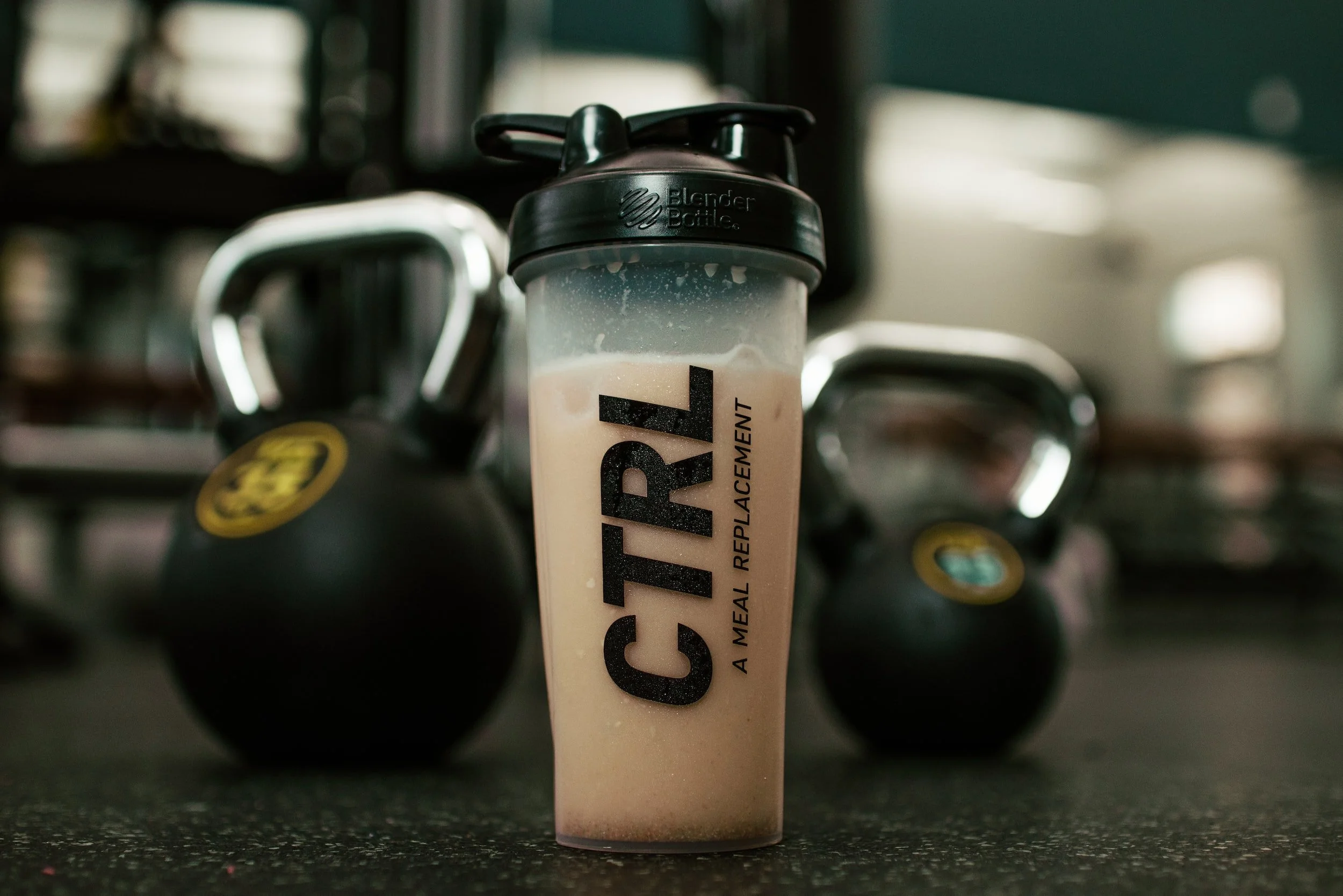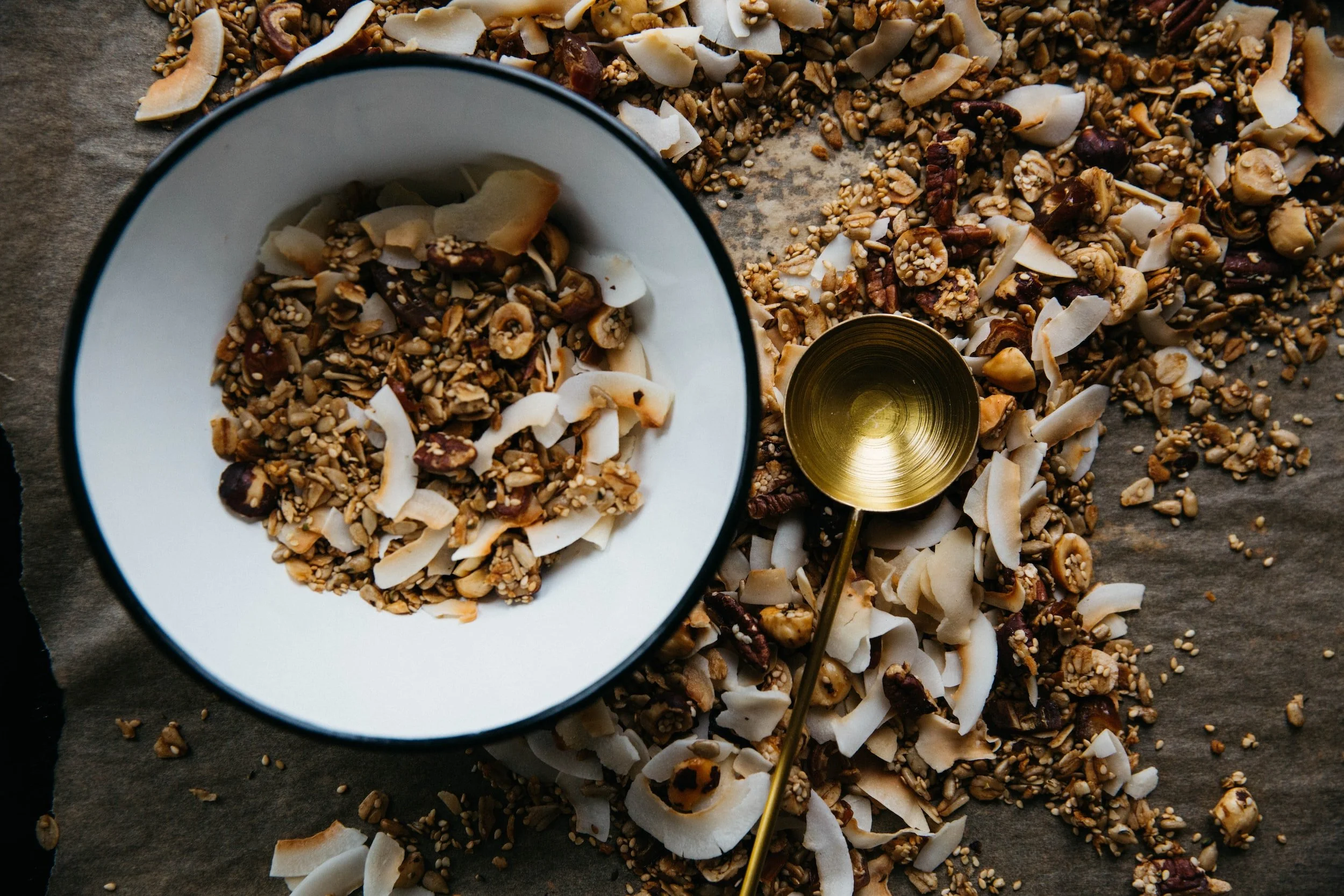Bulking 101: Everything you’ve ever wanted to know about how to eat for muscle gain.
Previously on the Munchies & Macros blog I wrote about creating the perfect environment for muscle growth in the gym, this week I’m focusing on nutrition because without a nutritional strategy, simply increasing calorie intake can result in a lot of fat gain.
To minimise fat gain during a bulking phase, there are a few variables to consider, so without further ado, let’s dive in.
What is bulking?
Bulking or a calorie surplus is increasing energy intake as a way to increase muscle mass. If the main goal is to create muscle hypertrophy, a strength training plan is also needed to facilitate this growth. Studies have shown that muscle can still grow in a surplus in an absence of strength training however with that gain comes more fat mass (Slater et al 2019).
Personally, I see that as good news because if you’re reading this blog right now, chances are you’re ready to put in the work and don’t plan on just eating your way to muscle gain. If only that were a thing eh?
So next comes the most obvious question: does everyone have to eat in a surplus to create hypertrophic conditions?
No, not everyone. Individuals that carry enough body fat will likely be able to build more muscle than leaner individuals without having to worry about increasing energy intake. In fact, research has found that in some cases, muscle can even be gained during a fat loss phase but this is likely due to subjects that were “resistance training naive” or “obese” (Slater et al 2019).
In other words, if you aren’t carrying a huge amount of body fat and you have some experience in the gym, you probably will need to consider increasing energy intake every once in a while.
What does fat mass have anything to do with muscle building?
If you are a regular reader of the M&M blog you’re probably sick of hearing this already but for those new to my platform; body mass is energy and since energy cannot be created only transferred, you need energy from somewhere to create muscle. Therefore muscle needs to either come from a combination of:
Training + excess fat
or
Training + excess food
Now that this is clear, let’s move on to the hows and the whats…
How much calorie increase do I need to build muscle?
Again it depends. I often get my athletes to start slow, since a large surplus is likely to lead to too much fat mass too quickly, which might be hard to lose later on. Aim somewhere between 200-500 calorie increase to begin with. You’ll likely feel pretty good assuming you are choosing fresh foods to fuel your training and should be able to push harder during training sessions.
If after a week things are looking good and you feel great, you can re-evaluate your energy intake and either keep the numbers or add another 250 calories.
How quickly should I put on weight?
When making body composition changes I generally get my athletes to aim for 0.5lb-1lb of gain or loss. Especially when it comes to bulking, you want to make sure that you are able to do this at a controlled rate and aren’t suddenly skyrocketing your weight gain.
The faster you gain weight, the more likely you will gain it in fat. Plus let’s not forget that good eating habits should also apply here, so as long as you are still eating relatively healthy, this shouldn’t be a huge concern.
How long should I bulk for?
As with most nutritional adjustments, you’ll want to enter a ‘maintenance’ at some point. Regardless of whether you have increased your calorie intake once at the beginning of a surplus phase or had to keep increasing that number over the following weeks, you’ll want to eventually reverse out of a surplus if you are continuing to gain weight.
If after a few months, you have been gaining weight consistently and beginning to notice more fat gain than you are comfortable with, now is the time to reverse back, this is called diet periodization.
If you want to learn a little more about diet periodization, check out Diet periodization: what is it and how to do it.
How long you remain in a surplus will really depend on how happy you are with your progress. Things to look out for are:
How much more energy you have in your training
Your sleep patterns
Your mood
And of course if your main goal is muscle growth then you’ll want to consider whether you are happy with the results or not. Remember that “visible muscle” during a bulking phase is often hard to see and only revealed after a ‘cutting’ phase since much of your gain will likely be hiding under some body fat, so bear that in mind when you are considering your next steps.
I often recommend my athletes bulk for no less than 12 weeks. Any less than that and it’s probably not enough to see genuine muscle growth.
Avoid hopping on and off cycles because you’re either losing too much muscle in a cut or gaining too much fat in a bulk. Decide on your goal and see it to the end of the phase.
Everything is reversible, don’t panic.
What should my macro split be during a bulk?
For sports performance and body composition, macros will always matter. Now is not the time to be eating everything and anything.
We aren’t looking to just gain weight for the sake of gaining weight. Remember the purpose of a bulk is to help you increase performance and hopefully build some muscle.
Because of this, it’s important that you eat mostly whole foods, and understand which macros will support your goals.
How much protein do I need to build muscle?
There is still debate as to exactly how much protein athletes need, but the recommendation ranges from 1.6-2.2g per kg of body weight.
One meta analysis found that the greatest muscle gain expereinced by both male and female subjects were that of 1.6g/kg and proposed that hitting the upper ranges of that recommendation unlikely had benefits and did not further facilitate more muscle hypertrophy (Morton et al 2020).
However, protein alone is not enough to facilitate muscle growth. So if protein is Batman, carb is Robin.
How much carbs do I need to build muscle?
Various research comparing high carb vs high fats have found no significant differences in body composition in the average non-athletic population. One study however noted that “the metabolic implications of exercise must be considered amongst resistance-trained individuals”. (Slater et al 2019)
In other words, when it comes to active individuals, macro splits can make or break your progress.
Because carbohydrates initiate anabolic signalling during bulking phases and support protein synthesis, without carbs, protein can’t deliver it’s full potential.
While it is well established in the scientific community that carbohydrates help with muscle recovery and sports performance, the exact needs of each individual is still quite vague.
The recommended range of carbohydrates to aim for is 4g-7g/kg for most strength athletes. For endurance athletes, this could potentially be as high as 10g+ depending on your training volume and your goals.
How much fats do I need to build muscle?
Once you have an idea of how many calories you should be aiming for in the initial stages of your surplus and you’ve worked out how many grams of protein and carbs you need, all you now have is your fat calories left to calculate. Use whatever calories you have left in your “constraints” and work out how much you need to consume.
As a general guideline, athletes should aim to hit anywhere between 20-30% fats and I do not recommend that you go any lower than 15-25% of your overall calorie intake.
Remember that not all fat macros are created equal. Here at M&M we don’t follow the IIFYM (If it fits your macros), we care about the nutritional value of food so aim to hit all 3 types of fats; saturated, monounsaturated and polyunsaturated in equal parts.
There is more and more evidence to suggest that “Omega-3 fats enhances the anabolic response to nutritional stimuli and increases muscle mass and function in young and middle-aged males”.
We are of course still waiting on the consensus of middled-aged females ** waves hand wildly in the air** , but we know we might have to wait a little longer for females to be represented more in the world of sports science. **cue sound of crickets**
So I’m afraid its not about eating pizzas and burgers everynight folks.
How to handle satiety during a bulk?
If consuming more food is a struggle (believe it or not those people do exist), there are a few strategies you can follow to help you manage satiety.
Drink your calories! Changing food forms from solids to liquid makes it easier to consume before satiety kicks in, plus if you’re looking to hit your carbs in the post workout window as a means to help you recover better, you might find your appetite suppressed from the effects of a workout therefore drinking your calories might also be helpful here.
Choose foods that are energy dense but don’t carry so much volume. For example a few dates may provide you with the same amount of energy as 3 bowls of watermelon!
What is adaptive thermogenesis and how can it affect my gains?
Our metabolic rate changes depending on many factors and one of them is how much body fat we carry. The heavier you are, the higher your metabolic rate will be. Logically this might make you assume that the more fat you have, the faster your metabolism is, unfortunately, no.
Although larger bodied individuals will have a higher metabolic rate (because their bodies will require more energy to stay alive), this doesn’t necessarily mean that their metabolism will be faster than a leaner body. This is because metabolically speaking, lean mass is costly to maintain.
This is where things get potentially confusing and likely why many people become stuck and unable to progress. Remember that weight loss potentially leads to muscle loss, which is also a culprit for a slower metabolism. This means that your body is trying to adapt to the changes you are making so that it can remain in a homestasis.
This can of course happen in reverse.
Some geeky stuff…
During one study, 109 people were placed in a calorie deficit which resulted in a decrease on the metabolism of 83% of the participants. If you were to put that in calorie terms, here’s what they found:
27% experienced a decrease of 0-100 calories per day
33% experienced a decrease of 101-200
21% experienced a decrease of 201-300
2% experienced a decrease of more than 300
Can this happen to those wanting to bulk? Yes, but likely not to that extent. If you are intentionally increasing your energy intake but not seeing any gains examine your training volume and program and have a look into your overall energy expenditure.
How much fat gain should I expect?
Well again, it depends. The pace at which your enter your surplus, your training style and volume, your food choices, your genetics and various other factors play a role in exactly how much fat you will gain during a surplus.
For clarity, every pound of weight you gain, will very likely be a mixture of muscle, fat, water and various other things. For an explanation on the realistic rates of muscle gain visit this blog How fast does muscle grow.
To minimise fat gain during your bulking phase, focus on eating mostly whole foods and entering your suplus slowly, and most of all increase your strength training volume.
Conclusion
Creating the perfect environment for muscle growth depends on many factors, namely a great lifting program and a solid nutritional plan.
Not everyone needs to be in a surplus in order to see muscle growth but leaner individuals may need the extra energy intake to facilitate growth.
There is no clearly defined energy intake estimate for 1kg of skeletal muscle mass, this is partly due to the nuances of the individual; sex, age, volume of training, genetics, diet etc whcih can all lead to adaptation of an energy surplus.
Until we have a better understanding of these variables for the genearl population, only you or your coach will be able to prescribe the right program for you for best results.
Resources
Benito, P. J., Cupeiro, R., Ramos-Campo, D. J., Alcaraz, P. E., & Rubio-Arias, J. Á. (2020). A Systematic Review with Meta-Analysis of the Effect of Resistance Training on Whole-Body Muscle Growth in Healthy Adult Males. International Journal of Environmental Research and Public Health, 17(4). https://doi.org/10.3390/ijerph17041285
Slater, G. J., Dieter, B. P., Marsh, D. J., Helms, E. R., Shaw, G., & Iraki, J. (2019). Is an Energy Surplus Required to Maximize Skeletal Muscle Hypertrophy Associated With Resistance Training. Frontiers in Nutrition. https://doi.org/10.3389/fnut.2019.00131
Morton RW, Murphy KT, McKellar SR, et al
A systematic review, meta-analysis and meta-regression of the effect of protein supplementation on resistance training-induced gains in muscle mass and strength in healthy adults
British Journal of Sports Medicine 2018;52:376-384.




